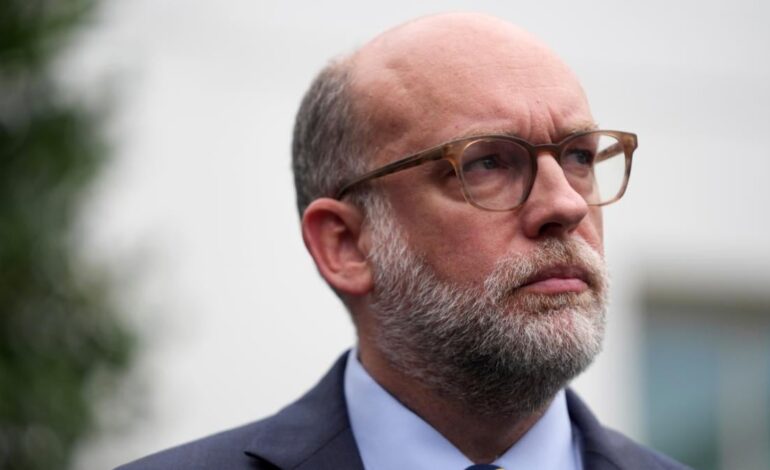Trump Administration Freezes $2.1 Billion in Chicago Infrastructure Funding

The Trump administration has frozen funding totaling $2.1 billion for infrastructure projects in Chicago, citing concerns over “race-based contracting.” The announcement was made by Russ Vought, Director of the Office of Management and Budget, on Friday. This funding was intended for upgrades to the city’s transit system, including an extension of the Red Line Train and a modernization project for the Red and Purple lines, which aims to alleviate congestion on the tracks.
This funding freeze adds to an escalating list of halted projects, particularly affecting areas governed by Democratic leadership. Earlier in the week, Vought also confirmed a hold on $18 billion for two significant infrastructure projects in New York City, specifically the subway extension and the Hudson Tunnel project, which connects New Jersey and New York. Vought emphasized that the intent behind these actions is to ensure that federal funds are not utilized for practices deemed discriminatory.
The Department of Transportation stated, “Together, these critical reviews are intended to ensure no additional federal dollars go towards discriminatory, illegal, and wasteful contracting practices.” This approach has been met with strong criticism, especially from Senate Minority Leader Chuck Schumer and House Minority Leader Hakeem Jeffries, who represent New York. Schumer characterized the freeze as “stupid and counterproductive,” arguing that these projects are vital for creating jobs and boosting the economy.
The funding suspensions occur against a backdrop of ongoing tensions regarding a potential government shutdown. Democrats have resisted Republican demands to attach funding for expiring healthcare subsidies to a stopgap bill, a position that the White House has labeled a nonstarter. The Department of Transportation expressed concern that the shutdown hampers its ability to evaluate the Chicago and New York projects effectively.
“Unfortunately, Chuck Schumer and Hakeem Jeffries’ decision to shut down the government has negatively affected the Department’s staffing resources for carrying out this important analysis,” the agency remarked. As the political landscape grows increasingly fraught, President Trump has applied additional pressure on Democrats, threatening to dismiss thousands of federal employees and halt funding for various programs.
On Thursday, the administration announced a cancellation of nearly $8 billion in federal funding for 223 energy projects across 16 states that lean Democratic. This strategy has drawn sharp rebuke from Democrats, who argue that leveraging federal funds for political gain will ultimately hurt American citizens.
Rep. Rosa DeLauro, the top Democrat on the House Appropriations Committee, stated, “This was obviously designed as a political attack by the White House targeting Democrats. But the sad reality is that Americans — the middle class, working class, and vulnerable — who voted for both Democrats and Republicans will be hurt by this.”
The freeze on infrastructure funding aligns with the Trump administration’s broader campaign against diversity, equity, and inclusion (DEI) initiatives, which it claims are discriminatory and unconstitutional. Executive orders have been signed to dismantle DEI programs in various sectors, including the military and education. As a result, many federal employees involved in DEI efforts have been laid off, and numerous offices have been closed, leading to an estimated savings of $2.3 billion, according to the White House.
The Department of Justice has also issued directives requesting that federal fund recipients prohibit DEI-related training and policies aimed at protected groups. This directive applies to various entities, including schools, nonprofits, and private companies that receive federal contracts.
As these developments unfold, the impacts on infrastructure projects and federal employment remain significant. The administration continues to navigate a challenging political landscape while asserting its policies aimed at reshaping federal contracting practices.






